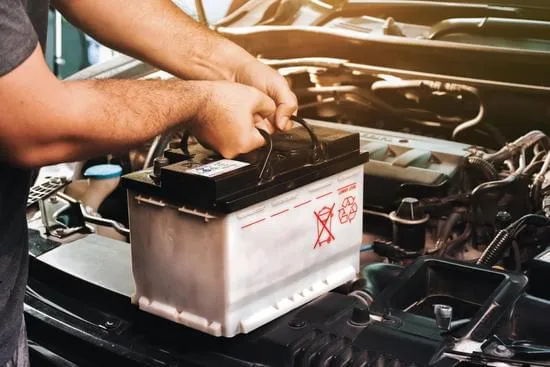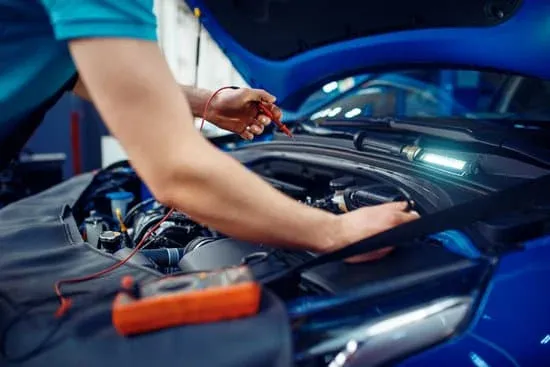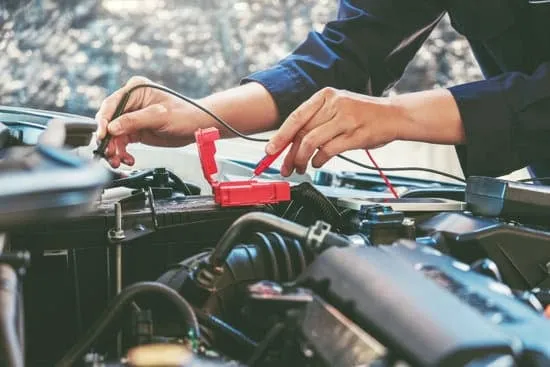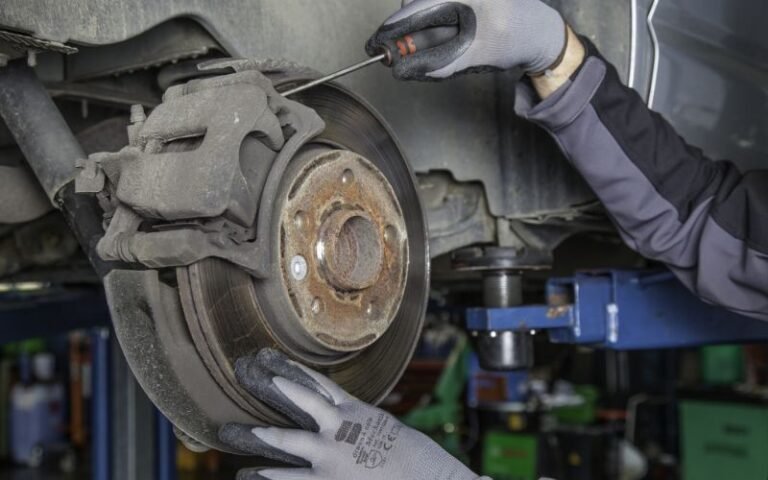Auto Electrical Repair
Your vehicle is more than just a mechanical machine; it is a rolling computer with a complex web of electrical systems that power everything from your headlights to your dashboard, ignition, and even seat warmers. When those systems fail, you need more than just a good mechanic; you need a professional auto electrical repair service.
In this complete guide, we explore what auto electrical repair involves, signs of failure, common electrical issues in modern vehicles, how diagnostics work, and why trusting an expert is critical to your safety and wallet.
What is Auto Electrical Repair?
Auto electrical repair refers to diagnosing, troubleshooting, and fixing electrical problems in vehicles. This includes components like:
- Alternators
- Batteries
- Starter motors
- Fuses and relays
- Wiring harnesses
- Ignition systems
- Control modules (like the ECU or ECM)
Today’s vehicles, whether gas-powered or hybrid, depend on a vast network of automotive electrical systems. When even a small electrical failure occurs, it can cascade into multiple other issues, from your car refusing to start to your brake lights staying on.
Why Modern Vehicles Rely Heavily on Electrical Systems
Over the last two decades, vehicles have shifted from being mechanical-first to electronics-first. Your car’s electrical system now controls:
- Engine performance (via the ECM)
- Transmission shifts
- Air conditioning and heater
- Power seats and windows
- Safety systems like airbags and anti-lock brakes
- Infotainment and navigation systems
- Keyless entry and push-start ignition
Even a simple electrical fault can disable your vehicle. That is why electrical diagnostics are now one of the most crucial aspects of modern auto repair.
Signs You Need Auto Electrical Repair
Most drivers recognize engine noise or brake squeals, but electrical issues often sneak up silently. Here are some common warning signs that indicate you may need professional automotive electrical services:
The Car Won’t Start
A failing starter motor, corroded battery terminals, or a broken ignition switch can prevent your vehicle from starting.
Dashboard Warning Lights
The infamous “Check Engine Light” or battery light often points to a deeper electrical fault, not always mechanical.
Dimming or Flickering Headlights
Poor current flow or a failing alternator is likely to blame.
Power Windows or Seats Malfunctioning
These draw significant current and will fail if there are fuse or wiring harness issues.
Burning Smell or Blown Fuses
A short circuit or electrical overload could pose a fire risk. This needs urgent attention.
What Happens During an Electrical System Diagnostic?
Professionals use advanced tools like OBD-II scanners, multimeters, and circuit testers to perform electrical diagnostics. The process involves:
Visual Inspection: Checking battery terminals, wires, and connectors.
Battery Test: Using a voltmeter to determine if your battery holds a charge.
Starter and Alternator Testing: Verifying current flow and output.
Control Module Scan: Retrieving fault codes from the ECU.
Wiring Inspection: Locating broken wires, loose grounds, or corrosion.
These tools allow experts to accurately identify the root of the issue, whether it’s a bad alternator, a fuse box issue, or a faulty sensor.

Most Common Auto Electrical Problems And How They Are Fixed
Below is a breakdown of frequent electrical issues and how they’re typically resolved:
Dead Battery
Cause: Age, parasitic draw, or poor charging.
Fix: Battery replacement or alternator check.
Faulty Alternator
Cause: Worn bearings, diodes, or regulator.
Fix: Replace the alternator or rebuild.
Starter Motor Issues
Cause: Burned-out motor, relay failure.
Fix: Replace starter, repair wiring.
Blown Fuses or Relays
Cause: Short circuit or overloaded circuit.
Fix: Replace fuses, locate and fix the source of overload.
Malfunctioning Sensors (O2, Crankshaft, etc.)
Cause: Heat, dirt, or electrical failure.
Fix: Sensor replacement or reprogramming.
Wiring Harness Damage
Cause: Rodents, wear and tear, corrosion.
Fix: Splice, replace, or rewire the damaged section.
Each fix requires precise handling; DIY jobs can make electrical issues worse if not approached with knowledge and tools.
DIY or Professional Auto Electrician?
While changing a fuse might be doable at home, auto electrical repair is one area where professional help is often non-negotiable.
Benefits of Hiring a Professional Auto Electrician:
- Deep diagnostic knowledge
- Access to specialized tools (OBD scanners, amp clamps, oscilloscopes)
- Safe repairs that won’t void warranties
- Guaranteed fixes with warranty
Some even offer mobile auto electrician services, coming to your location for diagnostics or minor repairs; a huge time saver!
Dealership And Local Auto Electrical Shop
When it comes to vehicle electrical issues, should you go to the dealership or an independent shop?
| Feature | Dealership | Local Auto Shop |
| Diagnostic Tools | OEM-level tools | Often aftermarket, but accurate |
| Cost | More expensive | Usually 20–40% cheaper |
| Speed | Slower due to high volume | Faster turnaround |
| Warranty | Often factory-backed | Shop warranties vary |
| Personal Attention | Less | More personalized service |
If your car is under warranty, a dealership might be the right call. Otherwise, a reputable local auto electrical repair shop offers excellent service at lower prices.
Environmental Concerns & Car Electrical Systems
Believe it or not, fixing your electrical system can be eco-friendly. A faulty alternator or battery can:
- Overwork the engine, increasing emissions
- Lead to multiple component failures (more waste)
- Causes unnecessary replacement of parts
Proper electrical maintenance reduces waste and emissions—a smart move for your wallet and the planet.
USA Specific Perspective: Why Auto Electrical Repair Is More Important Than Ever
In the United States, especially in states like California, Texas, and Florida, extreme weather puts added strain on vehicle electronics. Heat, humidity, and road salt can corrode terminals, weaken battery life, and cause unpredictable failures.
Also, as more Americans adopt EVs and hybrid vehicles, knowing where to go for specialized electrical repair is vital. EVs run almost entirely on electronic components, from the battery management system (BMS) to regenerative braking.
Whether you are driving a classic Chevy or a Tesla Model 3, auto electrical systems are the new heartbeat of your car.
Auto Electrical Repair Costs: What to Expect
The cost of auto electrical repairs can vary significantly based on the type of issue, your vehicle’s make and model, and labor charges in your area. Here’s a quick breakdown of average prices in the U.S.
| Service | Estimated Cost (USD) |
| Battery Replacement | $100 – $300 |
| Alternator Repair/Replacement | $400 – $900 |
| Starter Motor Replacement | $300 – $800 |
| Wiring Harness Repair | $500 – $1,500+ |
| Fuse Box Repair | $150 – $400 |
| ECU Diagnosis & Reset | $80 – $250 (diagnostic fee) |
| Sensor Replacement (O2, etc.) | $150 – $500 |
Pro Tip: Always ask for an itemized estimate before authorizing repairs. Many shops offer diagnostic inspections for free or a small flat fee, which is often waived if you proceed with the repairs.
Hybrid, Electric, and Gas Cars: Key Electrical Differences
Gasoline-Powered Vehicles
These use traditional starter, alternator, and 12V batteries, with wiring primarily for accessories and ignition systems. Diagnosing issues is usually more straightforward.
Hybrid Vehicles
Hybrids have both an internal combustion engine and high-voltage electric components. Repairs require specialized tools and training, especially for:
- Regenerative braking
- Inverter and battery modules
- High-voltage safety systems
Electric Vehicles (EVs)
EVs run entirely on electricity. Their auto electrical systems include:
- Battery Management System (BMS)
- High-voltage battery packs
- Charging ports and onboard chargers
- Electric motors and power inverters
Not every auto repair shop is equipped to handle hybrid or EV electrical systems. Always choose a technician certified in electric vehicle diagnostics (ASE L3 or OEM-certified).

Preventative Maintenance: How to Avoid Electrical Issues
Regular maintenance can help you avoid expensive repairs. Here’s a checklist to keep your electrical system in top shape:
Monthly Checks:
- Inspect battery terminals for corrosion.
- Look for frayed or exposed wires.
- Test interior and exterior lights.
Every 3–6 Months:
- Check and replace fuses if needed.
- Run a diagnostic scan for any stored error codes.
- Clean or tighten ground connections.
Annually:
- Load test your battery.
- Test the alternator output.
- Inspect the starter and ignition system function.
DIY Maintenance Tip: Use a basic OBD-II scanner ($20–$60 online) to check for fault codes before problems become expensive.
How to Choose a Reliable Auto Electrician
Not all auto repair shops specialize in electrical work. Here’s how to pick the right one:
Certification Matters
- ASE Certified Technicians (especially ASE L1 and L3)
- OEM-specific training (Ford, GM, Toyota, Tesla, etc.)
Diagnostic Capability
Ensure the shop uses modern OBD-II and OBD-III tools and has experience interpreting live data, not just pulling codes.
Transparent Pricing
A trustworthy shop will offer:
- Free or flat-rate diagnostics
- Written estimates before repairs
- Warranty on parts and labor
Check Reviews
Use platforms like Google, Yelp, or RepairPal. Search terms like “best auto electrical repair near me” or “mobile car electrician in [Maryland]”.
Ask Questions
Good shops will clearly explain:
- The issue
- Why it occurred
- Your repair options
- What happens if you delay fixing it
Do not Ignore Electrical Symptoms
Postponing repairs for even “minor” electrical issues can snowball into:
- Complete vehicle failure
- Engine damage from improper voltage
- Safety system malfunctions (e.g., airbag sensors)
- Fire hazards from shorts or overheating circuits
When in doubt, have your vehicle inspected by a professional. The cost of early diagnostics is always cheaper than breakdowns or the replacement of multiple parts.
Need Electrical Repair? Do not wait, Get Expert Help Today
If you are experiencing electrical issues, do not ignore the signs. Whether your car won’t start, your lights are flickering, or you just want peace of mind before a road trip, it is time to visit a trusted auto electrical repair specialist.
Look for a shop that offers:
Free diagnostics or upfront pricing
Certified electrical technicians
Fast turnaround
Warranty-backed repairs
Do not risk your safety or end up stranded. Fix your car’s electrical issues today with a trusted local expert.
Final Thoughts
Auto electrical repair is not just about fixing broken wires; it is about restoring functionality, safety, and performance to your vehicle. From basic diagnostics to complex module replacements, this guide has given you the full picture on how to handle and prevent electrical issues.
Your car’s reliability depends on its electrical health. Keep it in check, and you’ll avoid being one of the thousands of stranded drivers who ignored a flickering dashboard light or a sluggish start.
FAQs
What’s the difference between a mechanic and an auto electrician?
Mechanics handle mechanical components (brakes, engine, suspension), while auto electricians specialize in electrical systems like wiring, sensors, and modules.
Can a dead battery be a sign of a bigger electrical issue?
Yes. Repeated battery failure can signal a faulty alternator, parasitic draw, or poor grounding, all of which need diagnosis.
Is it safe to drive with electrical problems?
No. Electrical issues may disable your power steering, brakes, or ignition system unexpectedly, making driving dangerous.
Can auto electrical issues drain gas mileage?
Yes. A bad sensor (e.g., O2 or MAF) can disrupt the air-fuel ratio, leading to increased fuel consumption.
How often should I get an electrical inspection?
At least once a year or whenever you notice strange lights, slow cranks, or accessory malfunctions.
Citation:
Meineke. (n.d.-b). Auto Electrical Repair | Meineke Car Care. https://www.meineke.com/services/auto-electrical-repair/







